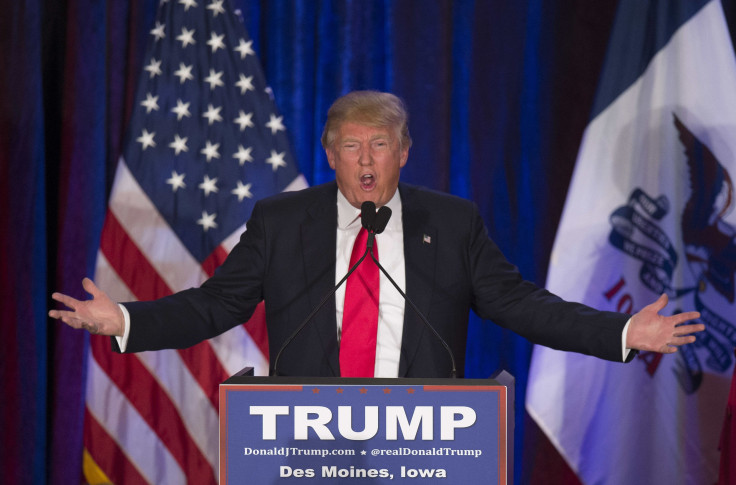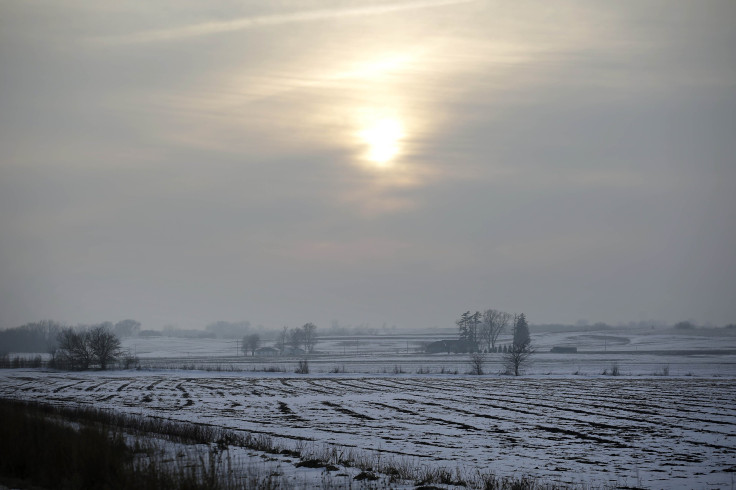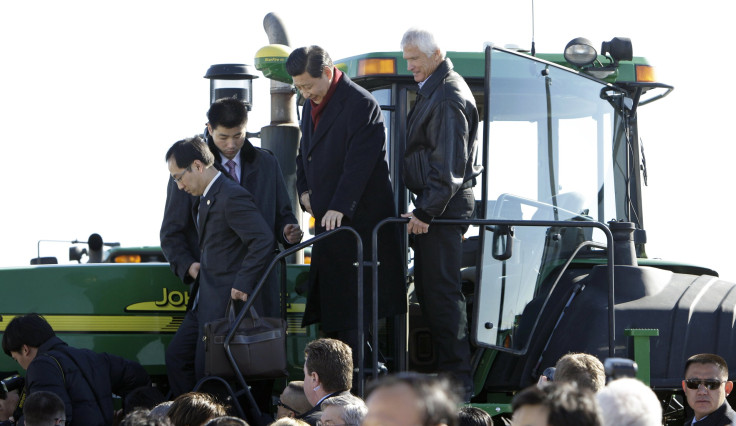Will Donald Trump Buy Iowa Farm? Amid China Slowdown, US Fed Rate Hike, Iowan Farmers Could Use Some Help

Jokes aside, farmers in rural Iowa would love for Donald Trump – or anyone, really – to buy some land. With an economic slowdown in China and the recent increase in U.S. interest rates, farmland values in the Midwestern state are sliding after several years of dramatic increases, and fears are growing that the agricultural land-price bubble is ready to burst.
Iowa's looming farm crisis comes as commodity prices are on the decline and is unfolding decades after overleveraged farmers in the state and across the nation lost their properties in a 1980s real estate bust. Iowa farmland values decreased in 2015 for the second consecutive year for the first time since 2000, and many farmers face high debt. Trump unwittingly drew attention to the problem during his concession speech Monday night after losing the GOP caucus vote in Iowa to Texas Sen. Ted Cruz. The self-funded billionaire presidential hopeful congratulated the candidates and thanked his supporters for a second-place finish.
“Iowa, we love you,” Trump bellowed at his rally in West Des Moines. “In fact, I think I might come here and buy a farm. I love it!”
Truly, Iowa farmers desperately need outside investment. Over the past few decades, family farmers in the Hawkeye State who depend on the products of their land have survived a number of challenges. Farmland prices shed 27 percent in the four years following 1982, after values peaked and farmers who had bought additional land were caught with too much debt as the markets saturated and commodity prices fell. In some parts of the Midwest, losses were more than 50 percent.

Before the 1980s farm crisis hit, Iowa was home to 121,000 family farms. Some 20,000 of those went under during the agricultural recession, which claimed nearly 235,000 family farms nationally, according to data from the U.S. Department of Agriculture.
“All it takes is for everyone in the world to have a good crop next year, and land prices will drop like a rock,” Stephen Riebel, a loan officer at Bank of Colby in Colby, Kansas, told Bloomberg in 2013. “I’ve seen the heartache that leads to.”
Land values are typically determined by two key factors: earnings and interest rates. In the past few years, net farm income has been at record high levels while U.S. interest rates have been at record lows. There are concerns this bubble is primed to pop as prices plunge for Iowa’s top cash crops, corn and soybeans, amid a global commodity glut.
In 2014, Iowa saw its sharpest decline in farmland values in 28 years after hitting a historic peak in 2013. The average value of an acre of farmland in the state for 2014 was $7,943, a drop of nearly 9 percent per acre from the previous year. In 2015, farmland values were down to $7,633 an acre, a 3.9 percent decrease, according to data collected by the Iowa State University Land Value Survey. Nationally, the U.S. Department of Agriculture forecast net farm income to be down 26 percent for 2013-2014 and down another 38 percent for 2014-2015. Meanwhile, corn and soybean prices plummeted last summer after the USDA raised its crop forecasts, citing higher yields than expected.
These issues are compounded by the U.S. Federal Reserve Board’s decision in December to come out of the low-interest era. The Fed said it will raise rates slowly, but an increase can deepen the drop in farmland values by widening the discount on the value of the future income stream produced by the land.

China is a key player in Iowa’s farmland values. Decades of close trading ties have led to rising exports from Iowa to China that nearly tripled to $1 billion over the past five years, making the Asian country the fourth-biggest foreign buyer of the state’s goods, according to U.S. Census Bureau statistics. Soybeans, Iowa’s No. 1 crop, and other agricultural goods are among the largest of these exports, as China seeks supplies to fatten up its pigs, poultry and other livestock amid increased consumer demand for meats. But the current slowdown in China’s economic growth will mean a pullback in demand for meat and along with it, a diminishing need for soybeans, corn and grains that are used to feed cattle. China announced last year it was devaluing its currency to help boost its slumping economy, the world's second largest, but the stock market in Shanghai remains volatile.
"China’s slowing economy is the thundercloud on the horizon,” Joseph Rude, a marketing manager at the Iowa Economic Development Authority specializing in Asia-Pacific trade promotion, told the Des Moines Register in August.
Perhaps Trump would have more to celebrate if he had addressed the grievances of farmers earlier on the campaign trail in Iowa, where more than 90 percent of land is used for farming. In 2008, then-Sen. Barack Obama won the Democratic Iowa caucus after making promises to local farmers to protect their land, drinking water and the environment. The victory established Obama as the Democratic front-runner over Hillary Clinton and ultimately propelled him toward the White House.
“Because for far too long, you’ve had to listen to politicians tell you one thing out on the campaign trail and then close the door and do another thing in Washington when they make rural policy,” Obama told a room full of more than 400 Iowa farmers and rural activists ahead of the 2008 caucus in Des Moines.
© Copyright IBTimes 2024. All rights reserved.





















